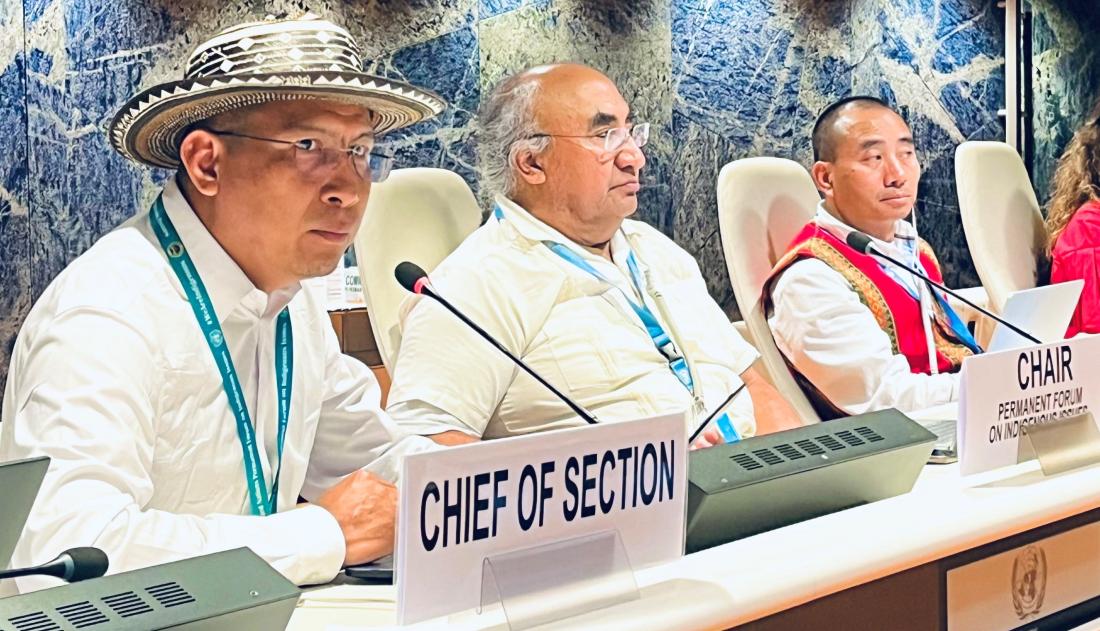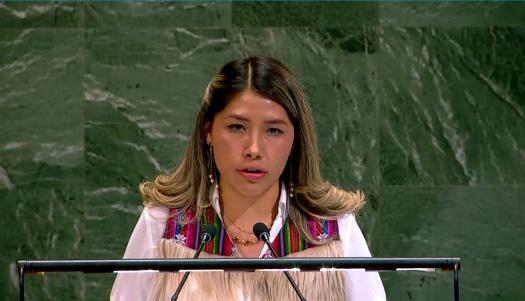
Joint statement by the United Nations Permanent Forum on Indigenous Issues, Special Rapporteur on the Rights of Indigenous Peoples, and the Expert Mechanism on the Rights of Indigenous Peoples, July 2023:
The 100-year commemoration of the Deskaheh mission's attempt to reach the League of Nations in Geneva is a moment to remember that Indigenous Peoples have existed long before States were formed. They have always fought to preserve their governance structures, autonomy, and inherent right of self-determination.
The adoption of the United Nations Declaration on the Rights of Indigenous Peoples represents a milestone global achievement of the Indigenous Peoples movement as the most comprehensive statement regarding the rights of Indigenous Peoples. Its adoption is the clearest indication that the international community is committed to protecting the individual and collective rights of Indigenous Peoples. These rights and their participation were reinforced and reiterated during the 2014 World Conference on Indigenous Peoples.
In the challenging journey of recognizing Indigenous Peoples’ rights, the establishment of three United Nations Indigenous-specific mandates, namely the United Nations Permanent Forum on Indigenous Issues (UNPFII), Special Rapporteur on the Rights of Indigenous Peoples, and the United Nations Expert Mechanism on the Rights of Indigenous Peoples (EMRIP), have been significant decisions by UN Member States to advance the realization of Indigenous Peoples' rights.
Despite the existing global consensus around the UN Declaration on the Rights of Indigenous Peoples, we have observed developments that have raised concerns about the integrity and backdrop of the rights of Indigenous Peoples. In particular, we have observed that in many conventions and processes, the term Indigenous Peoples has been used in conjunction with other ambiguous terms and groups such as “local communities.” In fact, the characteristics, nature, and origins of the rights of Indigenous Peoples are very different from other groups. Therefore, Indigenous Peoples should not be grouped with an undefined set of communities that may have very different rights and interests.
In response to this situation, we take our responsibility seriously in assisting UN entities in respecting and promoting the realization of these rights consistent with those affirmed in the UN Declaration on the Rights of Indigenous Peoples. Therefore, we, the UN mechanisms of Indigenous Peoples urge all UN entities in their methods of work to refrain from conflating, associating, combining, or equating Indigenous Peoples with non-indigenous entities, such as minorities, vulnerable groups, or “local communities.” We further request that all UN Member State parties to treaties related to the environment, biodiversity, and climate cease using the term "local
communities" alongside "Indigenous Peoples," so that the term "Indigenous Peoples and local communities" is no longer used.
Download the joint statement here: EN | ES
 Welcome to the United Nations
Welcome to the United Nations


